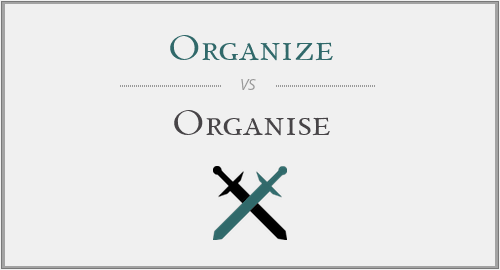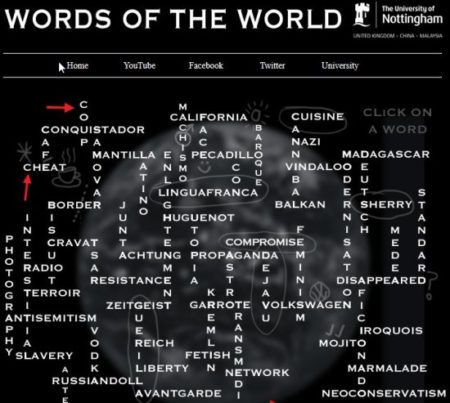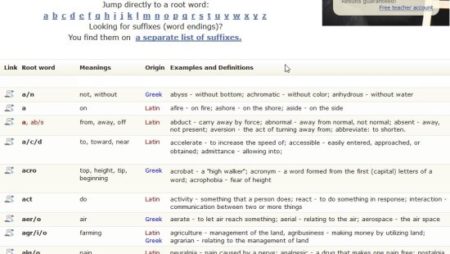- Dictionary
- O
- Organized
Transcription
-
- US Pronunciation
- US IPA
- UK Pronunciation
- UK IPA
-
- [awr-guh-nahyzd]
- /ˈɔr gəˌnaɪzd/
- /ˈɔːɡənaɪzd/
-
- US Pronunciation
- US IPA
-
- [awr-guh-nahyzd]
- /ˈɔr gəˌnaɪzd/
Definitions of organized word
- adjective organized affiliated in an organization, especially a union: organized dockworkers. 1
- adjective organized having a formal organization or structure, especially to coordinate or carry out for widespread activities: organized medicine; organized crime. 1
- verb with object organized to form as or into a whole consisting of interdependent or coordinated parts, especially for united action: to organize a committee. 1
- verb with object organized to systematize: to organize the files of an office. 1
- verb with object organized to give organic structure or character to: Cells become differentiated and organized into tissues. 1
- verb with object organized to enlist or attempt to enlist into a labor union: to organize workers. 1
Information block about the term
Origin of organized
First appearance:
before 1810
One of the 40% newest English words
First recorded in 1810-20; organize + -ed2
Historical Comparancy
Parts of speech for Organized
organized popularity
A common word. It’s meaning is known to most children of preschool age. About 95% of English native speakers know the meaning and use the word.
Most Europeans know this English word. The frequency of it’s usage is somewhere between «mom» and «screwdriver».
Synonyms for organized
adjective organized
- prearranged — to arrange in advance or beforehand.
- prepared — properly expectant, organized, or equipped; ready: prepared for a hurricane.
- planned — arranged, organized, or done in accordance with a plan: a planned attack.
- ordered — neatly or conveniently arranged; well-organized: an ordered office.
- systematized — to arrange in or according to a system; reduce to a system; make systematic.
Antonyms for organized
adverb organized
- hurriedly — moving or working rapidly, especially forced or required to hurry, as a person.
- helter-skelter — in headlong and disorderly haste: The children ran helter-skelter all over the house.
- unmindful — not mindful; unaware; heedless; forgetful; careless; neglectful: unmindful of obligations.
- at random — If you choose people or things at random, you do not use any particular method, so they all have an equal chance of being chosen.
- incontinently — immediately; at once; straightaway.
adjective organized
- spontaneous — coming or resulting from a natural impulse or tendency; without effort or premeditation; natural and unconstrained; unplanned: a spontaneous burst of applause.
- disorganized — functioning without adequate order, systemization, or planning; uncoordinated: a woefully disorganized enterprise.
Top questions with organized
- how is the periodic table organized?
- how to get organized?
- how to be organized?
- how to stay organized?
- how was egyptian society organized?
- how to be more organized?
- who organized the first pan african conference in 1900?
- how did streetcars change the way that cities were organized?
- how to get organized at home?
- what does organized mean?
- how is the government organized?
- how is the declaration of independence organized?
- how is the federal reserve system organized?
- how is the bible organized?
- what is organized crime?
See also
- All definitions of organized
- Synonyms for organized
- Antonyms for organized
- Related words to organized
- Sentences with the word organized
- Words that rhyme with organized
- organized pronunciation
Matching words
- Words starting with o
- Words starting with or
- Words starting with org
- Words starting with orga
- Words starting with organ
- Words starting with organi
- Words starting with organiz
- Words starting with organize
- Words starting with organized
- Words ending with d
- Words ending with ed
- Words ending with zed
- Words ending with ized
- Words containing the letters o
- Words containing the letters o,r
- Words containing the letters o,r,g
- Words containing the letters o,r,g,a
- Words containing the letters o,r,g,a,n
- Words containing the letters o,r,g,a,n,i
- Words containing o
- Words containing or
- Words containing org
- Words containing orga
- Words containing organ
- Words containing organi
-
Defenition of the word organized
- methodical and efficient in arrangement or function; «how well organized she is»; «his life was almost too organized»
- formed into a structured or coherent whole; «organized religion»; «organized crime»; «an organized tour»
- being a member of or formed into a labor union; «organized labor»; «unionized workers»; «a unionized shop»
- methodical and efficient in arrangement or function
- formed into a structured or coherent whole
- being a member of or formed into a labor union
Synonyms for the word organized
-
- controlled
- logical
- methodical
- ordered
- orderly
- planned
- prearranged
- prepared
- reasonable
- sensible
- structured
- systematic
- unionized
- well thought-out
Similar words in the organized
-
- arranged
- configured
- corporate
- designed
- formed
- incorporated
- methodical
- ordered
- orderly
- organized
- re-formed
- regulated
- reorganised
- reorganized
- structured
- systematic
- union
- well-conducted
Antonyms for the word organized
-
- disorganised
- disorganized
- unorganised
- unorganized
See other words
-
- What is unfortunately
- The definition of poignantly
- The interpretation of the word malcontent
- What is meant by melancholics
- The lexical meaning negatives
- The dictionary meaning of the word negatived
- The grammatical meaning of the word dissatisfied
- Meaning of the word right through
- Literal and figurative meaning of the word inflexible
- The origin of the word discouragements
- Synonym for the word low spirits
- Antonyms for the word dissuasion
- Homonyms for the word disappointments
- Hyponyms for the word pitying
- Holonyms for the word damper
- Hypernyms for the word dejection
- Proverbs and sayings for the word desolation
- Translation of the word in other languages be bestowed
They hired a professional to help organize their wedding.
His office is a mess. He needs someone to help him organise his work.
Organise and organize are the two spellings of the same word, but which one is acceptable? The one with an s or a z? Can you tell which of the above mentioned sentences makes use of the right spellings of the word? If you are having difficulty answering your questions, you should read on this article as this explains the meaning of organize along with the right spellings and when to use which spellings.
Origin:
Organize originated from late Middle English: from medieval Latin organizare, from Latin organum ‘instrument, tool’ like organ.
Organize as verb:
Organize is used as a verb in English language which means to arrange systematically; order.
Organize lessons in a planned way.
To coordinate the activities of (a person or group) efficiently is also termed as organize.
She was unsuited to anything where she had to organize herself.
Organize also means to form (a number of people) into a trade union or other political group.
We all believed in the need to organize women.
To make arrangements or preparations for (an event or activity) is another sense in which organize is used.
Social programs are organized by the school.
An old meaning of the verb is to arrange or form into a living being or tissue.
The soul doth organize the body.
Use of organize:
Organise with an s are the old spellings of the word when it was founded from the Latin language but these spellings are a bit out of date today. Organise with an s is still used in British English though, and those of you writing for British audiences should use these spellings.
Examples:
Don’t mourn, organise: a seven-step plan for fighting back against the Brexit vote Katherine Craig. (The Guardian)
Use of organize:
The modern spellings of the word exchanged the s with a z which is the work of an American lexicographer, Noah Webster who thought there ought to be some changes made in the original English language for the Americans. So, these spellings are used in American English and are gaining a lot of importance worldwide.
Examples:
Having an efficient system to file and otherwise organize these documents can save frustration and time. [Los Angeles Times]
If organized labour is as great for workers as its supporters claim, why are so few people fighting to save it? [National Post]
Although they lost to New England, the Ravens’ organization remains stable. [Wall Street Journal]
Organize or organise:
Organise and organize are different spellings of the same word. Organize is the preferred spelling in the U.S. and Canada, and organise is more common outside North America. This extends to all the word’s derivatives, including organized/organised, organizing/organising, and organization/organisation. Your choice of the spellings depend upon your audience, your preference and nationality, but stick to the spellings you chose throughout your piece of writing.
“Organization” and “organisation” are two widely used spellings of the same term; therefore, many people are unsure which one to use. The gist of the response is: it depends on whether you are writing for an American or a British readership.
In American English, there is only one acceptable spelling for this word; however, both forms are valid in British English. So, there are restrictions on using it for American Natives.
Therefore, in the US, the word should be spelled “organization”. When writing for an American readership, you should always spell this term with a “z” rather than an “s”. “Organisation” and “organization” are valid in the UK and other British English countries, such as Australia and India. No matter how the term is spelled, the meaning remains the same.
This article will clarify the distinction between the words “organisation” and “organization” and demonstrate the proper usage of each. It will clear the ambiguity around their differences.
Organization: What Is The Meaning Of This Term?
Grammatically, “organization” is a noun that means a group of people who worked together in an organized way for mutual benefits. It can be either a government agency or a business organization.
Examples
- The news organization is known for its objective reporting.
- The homeowner’s organization is fining me for not mowing my lawn.
- Xavier is part of a political organization that reaches out to citizens who don’t regularly vote.
- Kelly was part of many college student organizations but never attended any meetings.
Organisation: What’s The Meaning?
It is a noun as well. It is spelled somewhat differently but instead is the same word as an organization. It has to be utilized similarly to an “organisation.”
Examples
- A significant component of western defenses is the US nuclear base at Incirlik; if Turkey left the “organisation”, this would be a severe setback.–The Telegraph
- According to Gianforte, the $50,000 payment to the CPJ, a free-standing non-profit “organisation” that supports press freedom and defends journalists’ rights globally, was made “with the belief that perhaps some good will come of these events.”–The Guardian
Language and Origin of Both Terms
Both of these words are from the English language but have different origins.
Organisation
“Organisation” was the original word. It is from UK English, also known as British English. It can be identified using the assistance of ‘s’ and separated from US English. Its Origin is in England.
Although “organisation” and “organization” are both used in the UK and considered correct, natives prefer to use “organization” because this is the original word.
Organization
This word is from US animations, known as American English. It has a ‘z’ in its spelling instead of ‘s,’ which, to be honest, makes a lot more sense.
When America became an independent country, its officials changed the spelling of many words to separate US English from UK English. Still, if we look at American English, it’s more logical and functional in terms of pronunciation.
“Organization” or “Organisation,” Which Spelling is Correct?
It depends on the region they are operating in; an “organisation” with a “z” or an “organisation” with a “s” is acceptable. British English accepts both spellings, but in American English, the only proper spelling is “organization.”
American English spelling has a more functional pronunciation; that’s why most non-native speakers tend to use American English; therefore, they prefer “organization”. But to date, Britain and its former colonies use British English.
Correct Usage of “Organization” and “Organisation” with Examples
Even though both of these spellings are acceptable, if you are writing for a British audience, you should spell “organization” with an “s.”
In a dispute about which British English spelling to use, go with “organisation,” which is recognized as being accurate by all English speakers.
Use of Word “Organization” in Sentences
Here are some examples of word arrangement utilized by writers worldwide:
- Was she able to meet others in your organization?
- She is a new member of this organization.
- World Health Organization (WHO) helps to provide health assistance in all countries.
- She is working in the HR department of this organization.
Uses of the Word “Organisation” in Sentences
Here are some examples of the word “organisation” by British novelists around the world:
- We, pigs, are brain workers. We are solely responsible for the management and organisation of this farm. We are keeping an eye on your well-being 24 hours a day. —George Orwell’s Animal Farm
- Were we having the time of our lives? Most likely not, if only because the pleasant times don’t require much organisation and aren’t frequently so expensive or public. The joyful ones unexpectedly appear. — David Nicholls, “Us.”
- She firmly believed that an organisation that demonized one group of people would eventually demonize other groups as well. To treat any individual as less than human was to degrade humanity itself.― Samantha Shannon’s song, “The Song Rising.”
Difference Between “Organization” and “Organisation”
As mentioned above in the article, both “organization” and “organisation” are the exact words with a slight change in spelling. It has a similar meaning (group of people who worked together in an organized way for mutual benefits or the quality of managing something in a particular order).
The origin of these words is also different; the word “organization” originates from American English, whose head is in the United States, while the word “organisation” is from British English, which is spoken in England.
To sum up, the differences between these two words are shown in the table below.
| Features | Organization | Organization |
| Meaning | A team of persons that collaborated in an organized manner for mutual benefits or the quality of managing something in a particular order | A group of individuals who worked with each other in an organized way for mutual concessions or the quality of managing something in a specific order |
| Language | American English | British English |
| Origin | United States | United Kingdom |
| Spelling | It is spelled with a ‘z’ in it, and it is correct | It is spelled with an ‘s’ in it, and it is also correct |
Bottom Line
- There are two standard pronunciations of the word, “organisation”, and “organization”.
- Many people aren’t sure which one to use. It depends on whether you are writing for American or British readers, which is the general takeaway from the replies.
- For this word, there is only one proper spelling in American English; however, both spellings are allowed in British English. Therefore, there are limitations on its use for American Indians.
- Organizational behavior is a field of study examining how people act in groups. Typically, the concepts of organizational behavior theory are put into practice to enhance business operations.
- The cornerstone of corporate human resources is the study of organizational behavior, which encompasses fields of study devoted to enhancing job happiness, job performance, and creativity.
Other Articles
- What’s The Difference Between “Angry Looking” And “Angry-Looking”? (In Grammar)
- “I like watching movies” And “I like to watch movies” (Exploring The Grammar)
- “They’re not” vs. “They aren’t” (Let’s Understand The Difference)
We use different languages worldwide to communicate with each other. Every so often we wonder where a word came from. How did a particular word start being used as a common word worldwide and where did it actually originate from. So to find this out we will explore the world of languages and origin of words in this article. This article will cover websites which will let you know the origin of a word.
The study of origin of a word is known as Etymology. You will find that often there are popular tales behind the origin of a word. Most of these tales are just tales and not true, but knowing how the word came into being is equally interesting. So let’s look at these websites to know the origin of words below.
Online Etymology Dictionary
Online etymology dictionary explains you the origin of words and what they meant along with how they would have sounded years back. You would see a date beside each word. This date represents the earliest evidence of this word being used in some sort of written manuscript. Now you can either search for a word you are looking for by typing it in the search box given at the top of the page, otherwise you can browse the words alphabetically. The website has a huge collection of words in it. You can go through the words and find out there origins and meanings as well.
Word Origins by English Oxford Living Dictionaries
Word Origins by English Oxford Living Dictionaries is a good website to know about a words origin. You can check out origin of a word or a phrase. You can search for the word or a phrase you are looking for or can even browse the page to know origin of different words. The website apart from this has a dictionary, thesaurus, grammar helper, etc. As this app has a dictionary, it proves to be a good source for knowing the origin of a word. You can see trending words when you scroll down the page. You can also subscribe to the newsletter on this website to receive updates regarding new words, phrases, etc.
Wordorigins.org
The website Wordorigins.org will let you know the origin of words and phrases. The website has a big list of words which you can go through, or even search for a particular word that you are looking for. The website also has a blog and discussion forum where people can discuss there views. You can login and become a member of the website so you receive regular updates from the website. You can either start browsing words by going to the big list words tab, or by searching for a word. The big list of words is in alphabetical order and there are about 400 words in here. Each word has a interesting story or folklore related to it.
Words of the World
Words of the World is a website which lets you watch videos to let you know the origin of a word. The website explains which language a word originated from through a video. The home page of the website will have a list of words for which you can see a video explaining how the word originated. The words on the home page are given in the format as shown in the screenshot above, but they can also be turned into a neat list if you like. The website is supported by the University of Nottingham and thus is a trusted source.
Learning Nerd
Learning Nerd is another website which has a section on English etymology resources. The website lists references to origin of words like there are word origin dictionaries listed, words with Greek and Latin roots are under a different category, words originating from around the world can be found under international words, and then there is a section for miscellaneous words. You can also play etymology quizzes and listen to etymology podcasts as well. The website itself doesn’t have much information about word origins but will redirect you to another website for your word needs.
Learn That Word
Learn That Word is another website which lists root words and prefixes. The website is pretty basic and a list of words can be seen right on the first page. The words are listed alphabetically, so you can even jump to a word that you are looking for easily. The website will list the root word, its meaning, its place of origin, and then definition and examples. This can be seen in the screenshot above.
These are the websites I found which let you know the origin of a word. Go through them and let me know which one you liked most. If you think there is a website which could be included in this article then leave a comment below.










